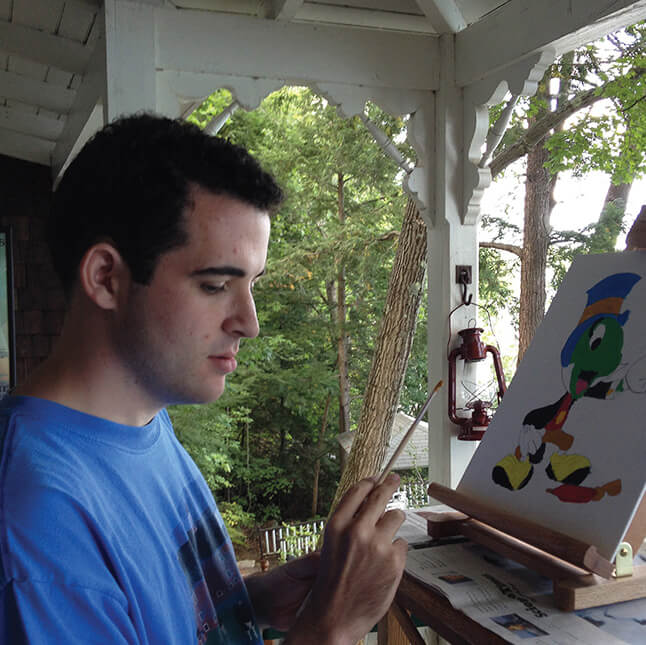“Who decides what a meaningful life is?”
Cornelia Suskind would ask herself after this question again and again after doctors told her that Owen Suskind, her autistic son, would never be able to live outside her care — or have a life of meaning.
Owen was a chatty 3-year-old when he began exhibiting symptoms of autism. In a few months, he lost all modes of communication. For Owen’s parents – Cornelia and her husband, Pulitzer-Prize-winning journalist Ron Suskind – it felt as if someone had kidnapped their toddler. “He cried, inconsolably. Didn’t sleep. Wouldn’t make eye contact.
His only word was ‘juice.’” Ron says. It was as if time was moving backward and taking their son along with it.
Owen was now a patient to be cured, and the Suskinds – like so many families of those with autism spectrum disorder (ASD) – did everything to treat him, to fix what had gone terribly wrong. But a less conventional form of therapy was occurring every night in the family basement, as Owen intently watched the Disney animated movies, mimicking the faces of characters and mouthing the words to the songs. After four years of silence and gibberish, they discovered he had memorized dozens of these animated classics in their entirety. They began to communicate in Disney dialogue, matching movies to
life events; acting out scenes each night. Little by little, speech began to return – he learned to read by reading credits – and Owen emerged as an adolescent who could navigate his emotions, relationships, and the wider world through his cinematic passions. Now 27 years old, he is living independently from his parents in a supported community and joyously working his ideal job…in a movie theatre.
The story of the Suskinds, rendered in Ron’s best-selling book, “Life, Animated”, and the Oscar-nominated documentary of the same name, has reached audiences around the globe, inspiring hope for patients and their families. Their story enables people to recognize the disabled as “different, but not less,” as Owen says, those who experience lives of deep meaning.
Through their organization, Sidekicks, Owen and the Suskinds now lead a movement to create support networks, drive research and create assistive technology to enable others to tap into their own creative affinities.
The once-silent Owen Suskind, and millions like him, are leading the way in getting the supports they need to turn passions into pathways – and answering Cornelia’s question as they carry out lives of dignity and possibility.
“Who decides what a meaningful life is?”
Owen now answers for himself: “I do!”

